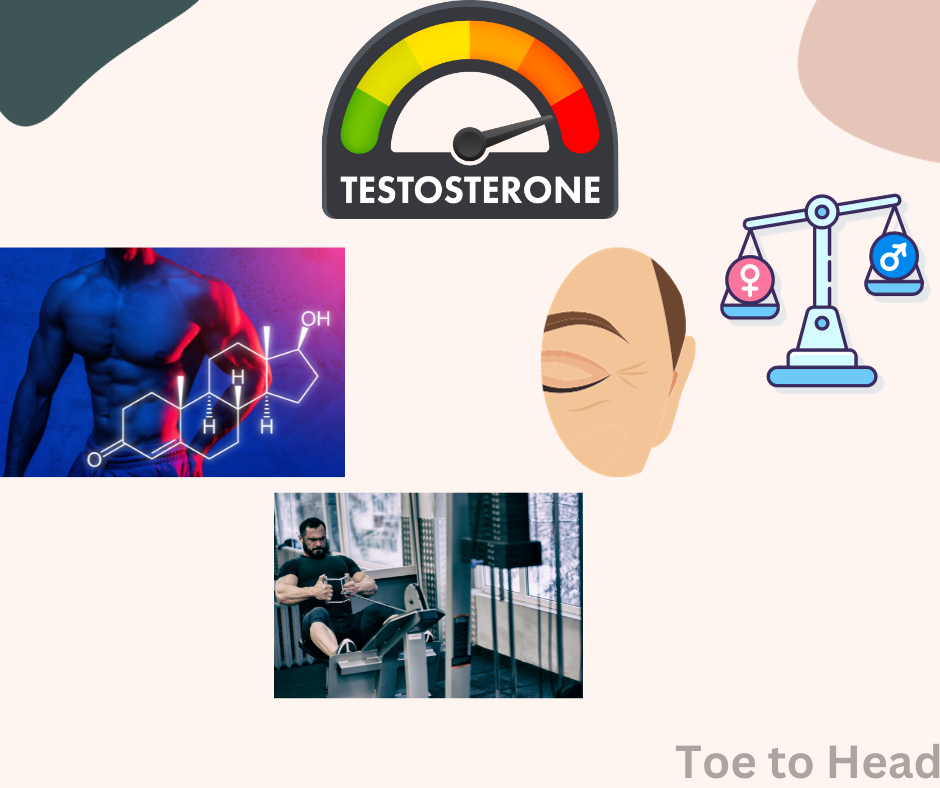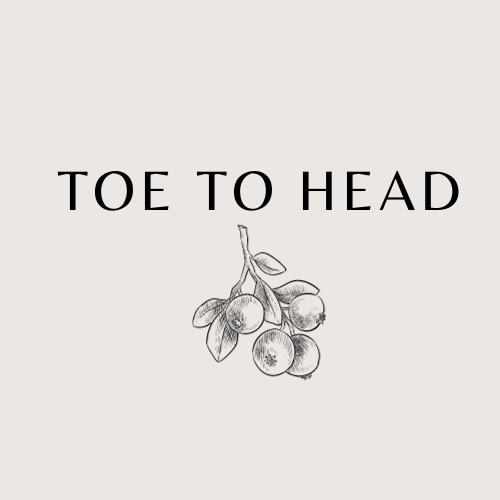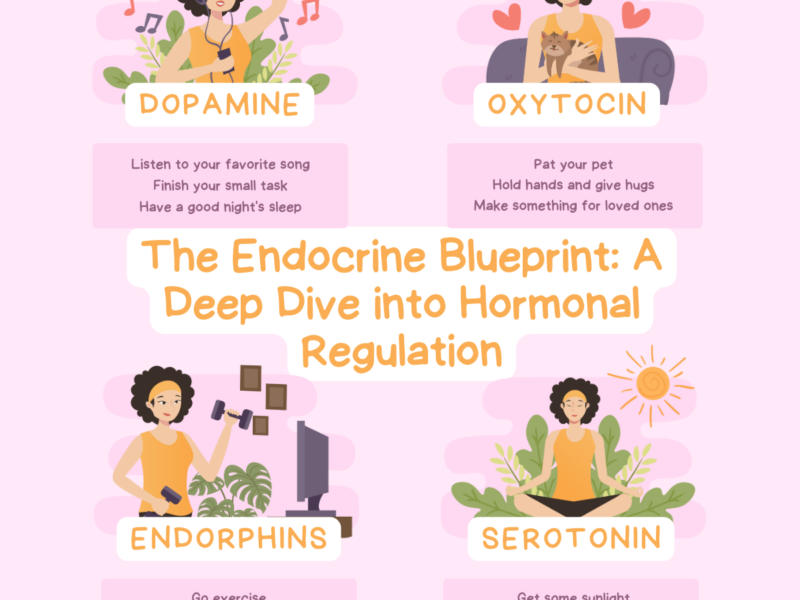introduction:
Testosterone, also known as the “male hormone,” is important in many aspects of health and well-being. This thorough book seeks to provide a deep understanding of testosterone and its various activities in the human body, from affecting muscle development to influencing mental health.
What is Testosterone?
At its heart, testosterone is a sex hormone found in both men and women, but in varying amounts. Testosterone is largely generated in the testes in males and the ovaries in women, although it is also produced in minor amounts by the adrenal glands. It is responsible for the typical deep voice, face and body hair growth, and muscle bulk in males and plays a critical function in the development of male reproductive tissues.
The Role of Testosterone in Men’s Health:
Testosterone influences men’s overall well-being in addition to its involvement in reproductive health. Adequate amounts of testosterone help to maintain muscle mass, bone density, and fat distribution. Furthermore, it is essential for sperm production and libido.

Testosterone and Muscle Development:
The influence of testosterone on the growth of muscles is one of its primary roles. Elevated levels of testosterone lead to a rise in protein synthesis, which facilitates the development and maintenance of muscular tissue. Understanding how testosterone affects muscle development is crucial for bodybuilders and strength trainers to maximize workouts and reach fitness objectives.
Hormonal Balance: Maintaining Healthy Testosterone Levels:
For general health, hormonal balance must be achieved and maintained. Age, diet, and way of life are some of the variables that can affect testosterone levels. Hormonal imbalance is known to be caused by chronic stress, sleep deprivation, and poor diet. In this section, we’ll look at some doable strategies for keeping your testosterone levels in check, like stress reduction tactics, restful sleep practices, and food suggestions.
Testosterone and Aging: Navigating Changes Over Time:
Men’s testosterone levels naturally decrease with age. This decrease is linked to a number of physiological changes, such as decreased muscle mass, elevated body fat, and altered mood and energy levels. Knowing how testosterone levels fluctuate with age can help people make educated decisions about their health and, if needed, seek the right interventions.
Boosting Testosterone Naturally: Lifestyle Strategies:
For those with clinically low testosterone levels, there are medical interventions available; however, many lifestyle factors can enhance natural testosterone production. The effects of consistent exercise, a nutrient-dense, well-balanced diet, and particular lifestyle decisions that promote optimal testosterone levels will be covered in detail in this section.

How can I understand my testosterone level?
A simple blood test is usually all it takes to find out your testosterone level. The amount of testosterone in your blood can help a doctor figure out how well your hormones are working. It’s important to talk to a doctor or nurse about the data so they can help you understand your hormonal health based on things like your age, sex, and overall health.
Is 1200 testosterone too high?
The average range for total testosterone is between 100 and 1200 ng/dL, but how different people react to testosterone levels can vary. Age, general health, and certain symptoms are some of the things that should be thought about. It’s important to look at testosterone levels in the context of a person’s health and get personalized help from a medical professional.
What are the signs of good testosterone?
Having a stable mood, having enough energy, and keeping your muscle mass are all signs of good testosterone levels. A healthy desire and ability to reproduce are also signs of normal testosterone levels. It’s important to remember that everyone will react differently, and talking to a doctor can give you a more true picture of your hormonal health.
What is normal testosterone by age?
Your testosterone levels may change as you age. In adult men, the average range for total testosterone is between 300 and 1000 ng/dL. But “normal” amounts can be different for each person, and it’s important to think about other health factors as well. Talking to a doctor or nurse can help you figure out what your testosterone levels mean based on your age and health.
What age does testosterone peak?
Most people reach their highest amounts of testosterone during adolescence and early adulthood, between the ages of 16 and 20. After that, as you get older, your testosterone levels may slowly drop. There are, however, differences between people, and things like general health and lifestyle choices can change how testosterone levels change over time.
Does masturbation decrease testosterone?
There isn’t strong scientific proof that masturbation lowers testosterone levels by a large amount. Most people think that regular sexual behavior, like masturbation, is a healthy and normal part of being sexual. Several things can affect testosterone levels, and sexual action once in a while probably won’t have a big effect.
What foods increase testosterone?
Some foods may help keep testosterone levels in a safe range. Zinc-rich foods, like oysters and lean meats, can be good for you. Along with a balanced diet full of vitamins and minerals, eating healthy fats from foods like nuts and bananas can also help your hormones stay healthy. But it’s important to eat a variety of foods and not just rely on certain ones to control testosterone levels.
Does exercise increase testosterone?
It has been shown that daily exercise, especially strength training or resistance training, can raise testosterone levels. Being active is good for your health in general and can help keep your hormones in order. But too much exercise, also known as overtraining, may have the opposite effect. This shows how important it is to keep a healthy approach to exercise for good hormonal health.
Conclusion:
In conclusion, a complete comprehension of testosterone goes beyond its stereotypical male connotations. It’s a hormone that plays a role in fitness and mood alike, so its effects on health are far-reaching. Individuals can take preventative measures toward maintaining a healthy hormonal balance throughout their lives by understanding the many functions of testosterone and incorporating lifestyle choices that promote its peak performance.



